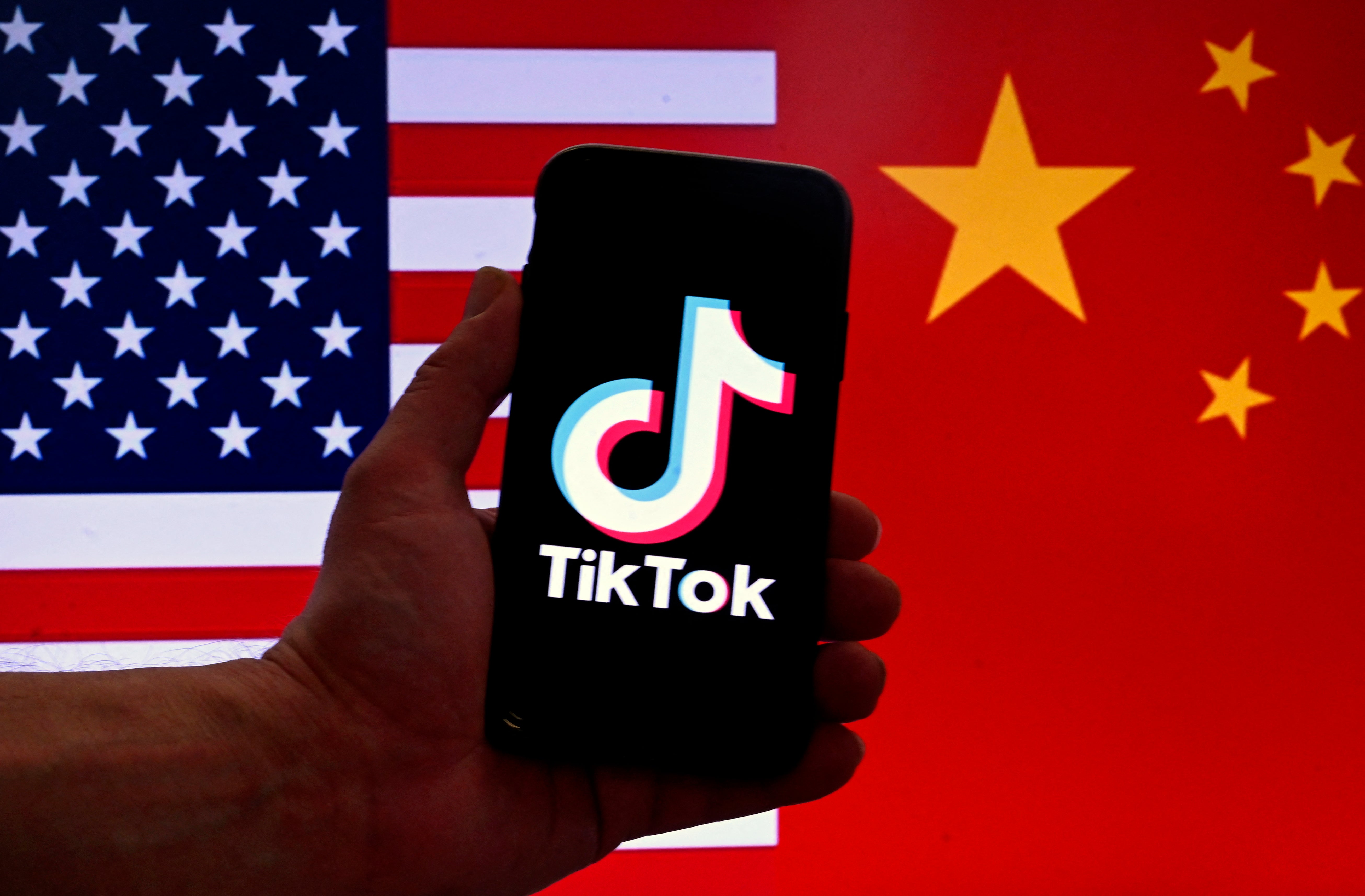America is right to tackle TikTok, but they’re doing it for the wrong reasons
Parents horrified at some of the destructive content on TikTok are ultimately unlikely to have their hopes realised, warns James Moore. Even if this United States bill does shut down the app, creators and users will simply go elsewhere


A “ban” on TikTok – Gen Z’s favourite source of news, entertainment, triviality and (sometimes) dangerous stunts – is firmly back on the agenda. A bill has passed the US House of Representatives, with (rare) bipartisan support, on a 352-to-65 vote. It now moves to the Senate, where influential legislators on both sides of the aisle have spoken in favour.
So, might we expect to see it pass?
That’s certainly the intention of Mark Warner, the Democratic chair of the Senate Intelligence Committee – and Marco Rubio, his Republican vice chair – who released a joint statement in support of the ban, highlighting their concern about the “national security threat posed by TikTok” and promising to work together to get it passed in the Senate – and signed into law.
At issue for TikTok critics like them is the platform’s ownership. The parent company, ByteDance, was birthed in a Beijing apartment but is incorporated in the Cayman Islands and is now one of the world’s tech titans with a valuation some way north of $200bn thanks to TikTok. The latter, launched in 2017, racked up a billion users in just four years.
ByteDance has sought to highlight the international nature of its investors, which include a number of big US institutions such as BlackRock. According to TikTock, institutional backers hold 60 per cent of the shares, while the founders account for 20 with employees “including 7,000 Americans” holding the rest. “It is not owned or controlled by any government or state entity,” states TikTok’s website.
In evidence submitted to Britain’s Parliamentary Business, Energy and Industrial Strategy Committee, TikTok stated: “TikTok has been accused of censoring content related to China. We can categorically confirm that this is not the case – we do not moderate content based on political affiliation or perspective. TikTok does not censor content that is critical of China or content related to Uyghur Muslims.”
Three of the five member ByteDance board are also Americans. The company, however, states that, as “required under Chinese law, in order to operate certain news and information products that are made available in mainland China, media licenses are required for those services. As such, an entity affiliated with the Chinese government owns 1 per cent of a ByteDance subsidiary, Douyin Information Service Co.”
It is this, and other links to Beijing, that concern the senators who claim in their statement that the business is “legally required to do the bidding of the Chinese Communist Party”. Earlier this year, the Wall Street Journal also published the results of an investigation which concluded that “TikTok struggles to protect US data from its China parent” despite promises to wall it off.
The politics behind the bill are both messy and fascinating. President Joe Biden overturned an earlier tilt at the app by Donald Trump but has promised to sign the bill into law if it reaches his desk. China has (as you might expect) gnashed its teeth. Trump has, meanwhile, performed a pirouette.
“There’s a lot of good and a lot of bad with TikTok,” he said. “But the thing I don’t like is, without TikTok you can make Facebook bigger – and I consider Facebook to be the enemy of the people along with a lot of the media.” Critics have noted that among the investors who would suffer as a result of a ban is Jeff Yass, a leading light in, and enthusiastic donor, to the economically conservative Club for Growth, with whom Trump recently had a meeting.
The Club has previously had a rocky relationship with Trump, but fences have recently been mended. He has yet to receive its endorsement, but powerful senators, including former presidential candidate Ted Cruz and Florida’s Rick Scott, have received what it describes as its “gold standard”, conferred upon “limited-government, pro-growth economic conservative candidates”.
In the House, 50 Democrats opposed the bill, no doubt with an eye on younger voters, among TikTok’s most active users and strongest supporters. They badly need them to turn out later this year. If they don’t, the Dems are doomed. This may explain Senate majority leader’s Chuck Schumer’s equivocation on bringing the bill to the floor. So did 15 Republicans, including Trump super-fan Majorie Taylor-Greene who warned that a ban would “open pandora’s box”. Could his apparent volte face on the app result in stronger opposition in the Senate?
The bill could also run foul of the America’s cherished first amendment guaranteeing free speech. Its Democrat co-sponsor, Raja Krishnamoorthi, having been shown some typically hyperbolic reactions by TikTokers, sought to address that and the app’s supporters by stressing: “This bill is not a ban. It is about a divestiture.”
But who could afford buy a divested TikTok if it is forced upon ByteDance (the bill would kick it off app stores if it is not sold)? Silicon Valley is doubtless salivating at the prospect but there are only a limited number of companies that could meet the app’s dizzying valuation. America’s antitrust regulators would likely take a dim view of their putting their hats, and their billions, into the ring.
Parents, who look on with horror at some of the destructive stuff peddled on TikTok, are ultimately unlikely to have their hopes realised. Even if this bill does result in its US demise, its creators and users will simply go elsewhere. There are indeed powerful forces opposed lining up against the operation in the US. But TikTok offers no easy fixes for any of them – and the looming election complicates things further.






Join our commenting forum
Join thought-provoking conversations, follow other Independent readers and see their replies
Comments